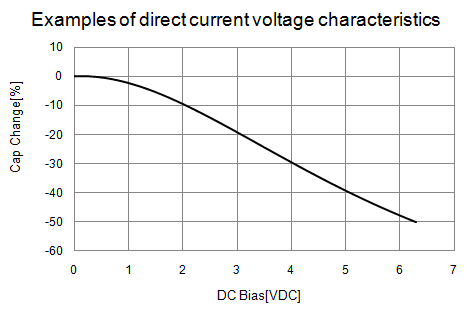I'm not saying that they are any different to any other capacitor in general but, certainly, some ceramic capacitors can exhibit certain features"certain features" that may make them problematic in some audio applications.
MicrophonicsMicrophonics is a recognized problem. The capacitor behaves like a piezo electric transducer and, in a sensitive amplifier producing a big audio output, there could be strange effects and possibly it could turn into an oscillator. I would imagine that in a desktop speaker with an audio amplifier built in there may be a few problems to overcome at some frequencies.
Lower grade dielectrics also alter their permittivity with applied voltage and, I can imagine that when handling a large ac signal in a filter circuit this could cause asymmetrical distortion of the waveform. This was taken from a page by Murata: -

